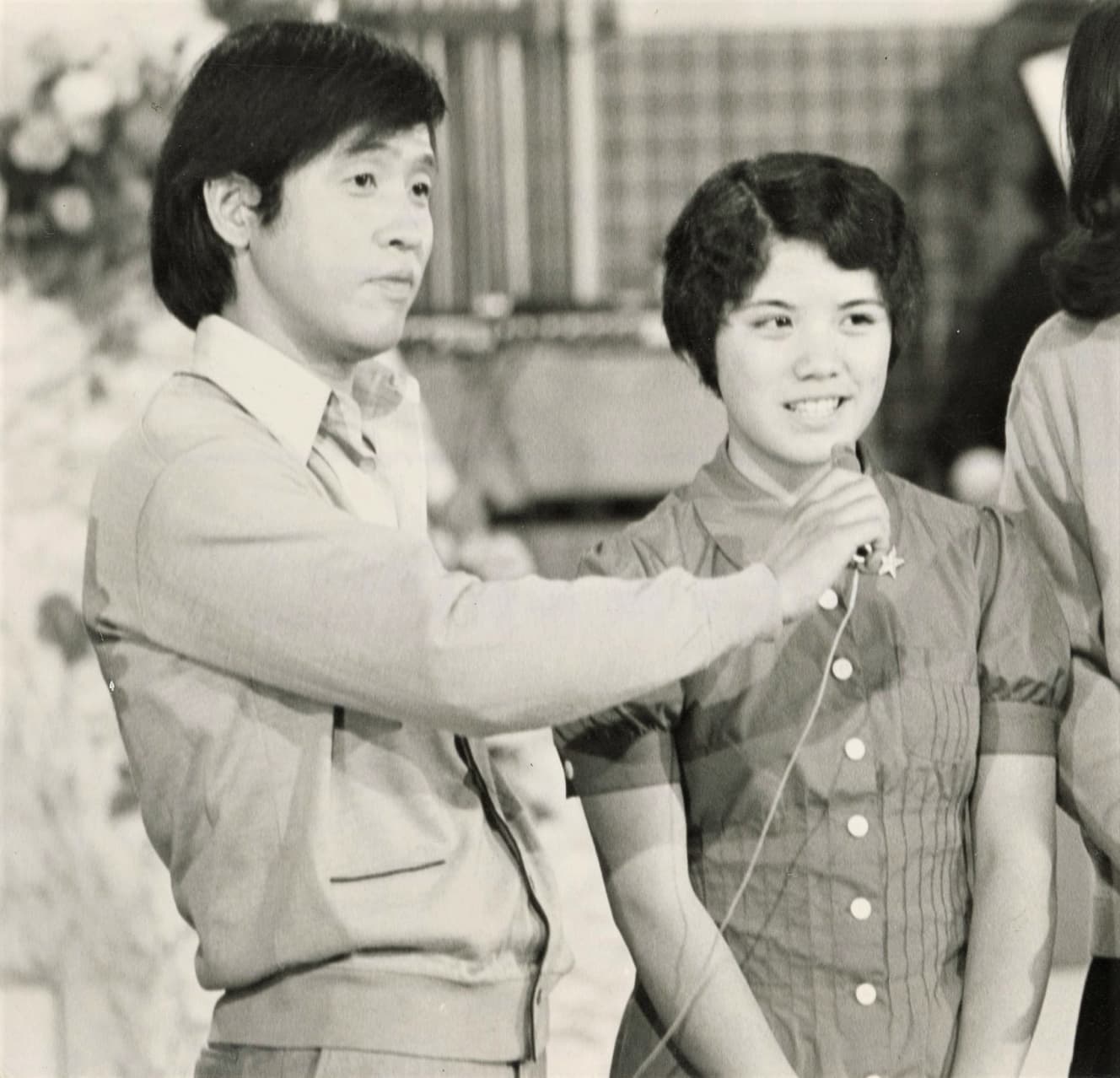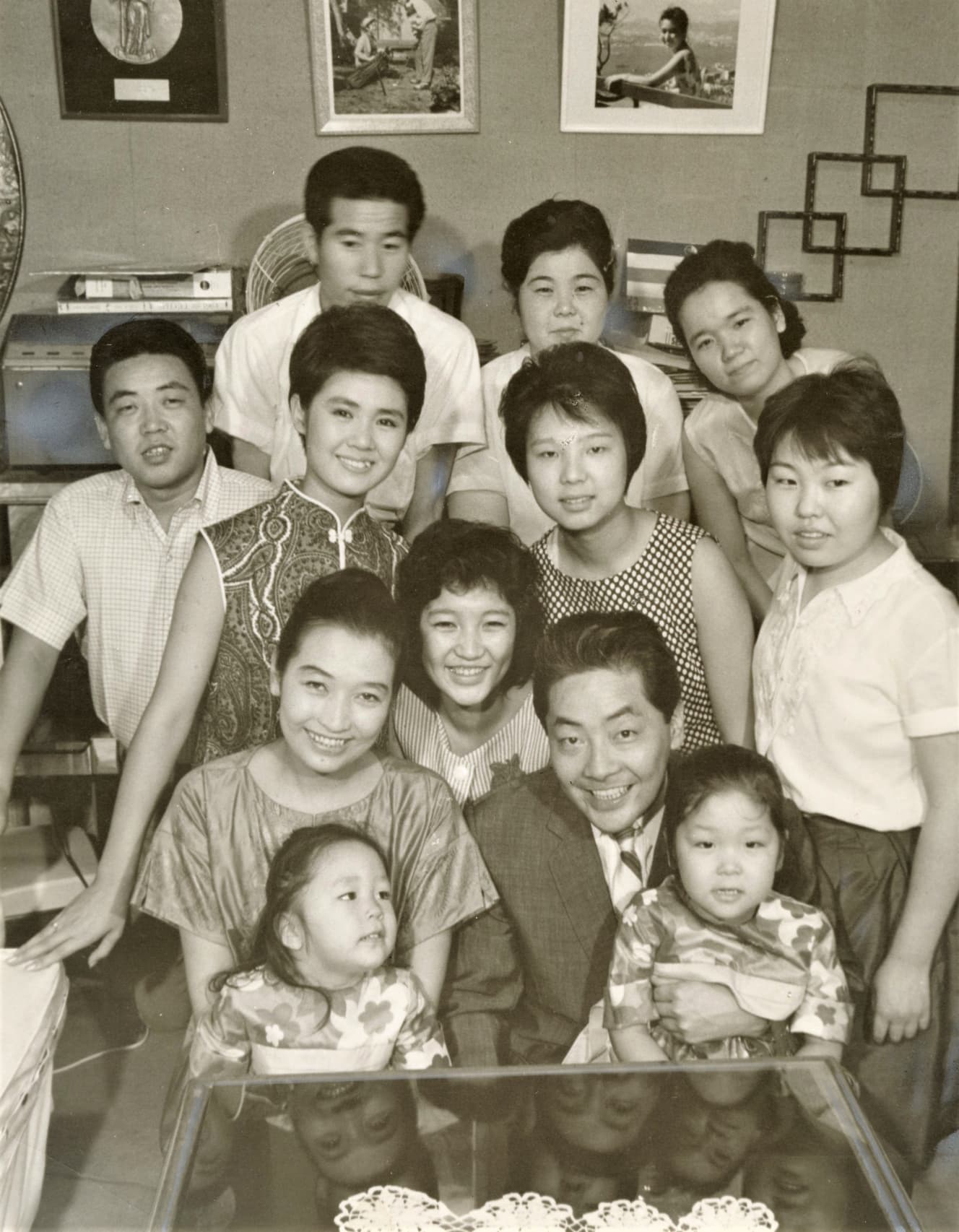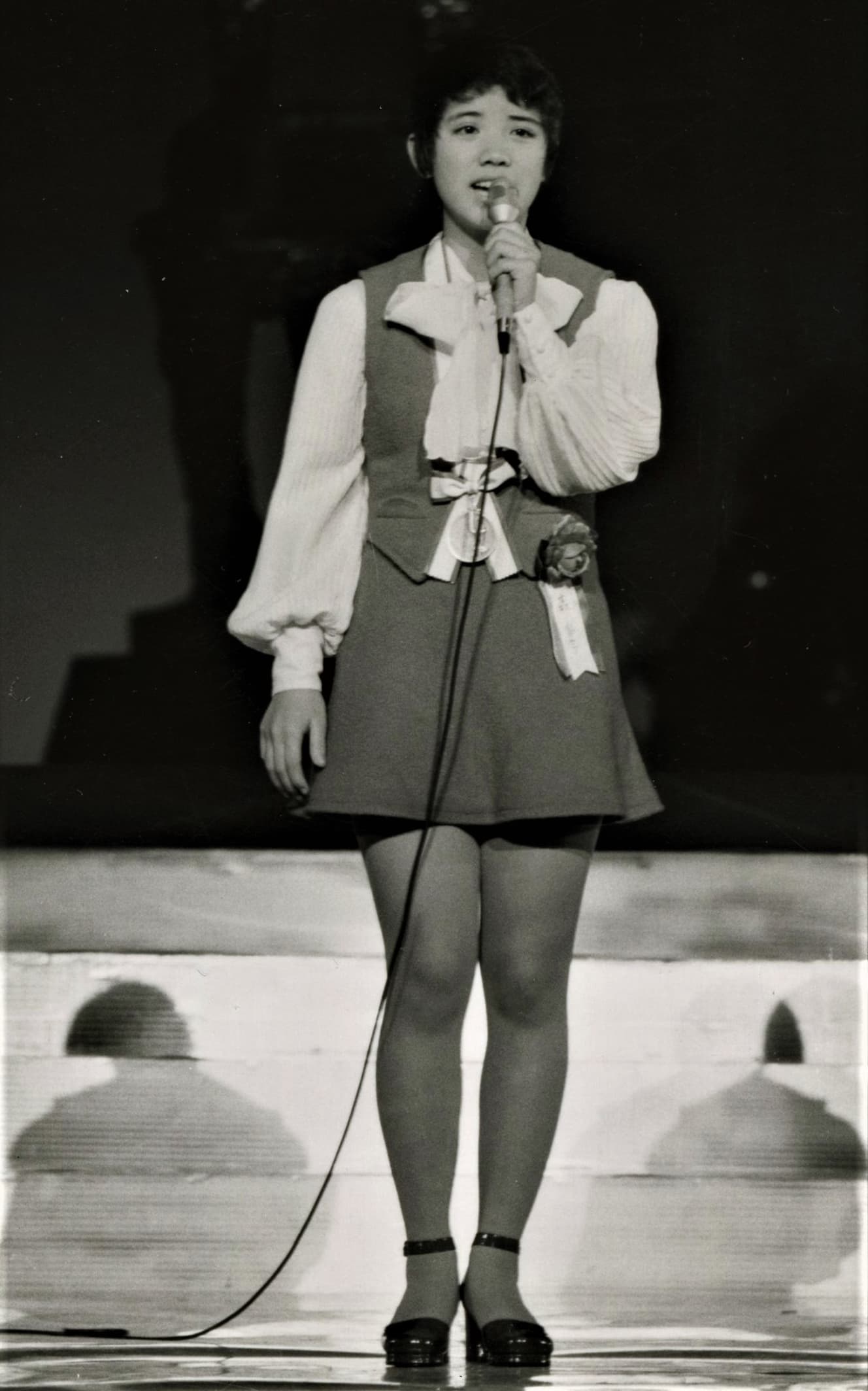The Birth of a Star! ignited the Nippon TV-Nabepro war and entertainment coup
TV Space-Time Detective Vol. 2 "The Birth of a Star Revolution
The Showa era entertainment world” is sometimes used as a metaphor for something fishy. The Showa-era entertainment industry was a place where unknown people were stirring around, people were being roughly manipulated, and human rights were virtually nonexistent.
Surprisingly, there was a TV program that attempted to visualize and deconstruct this. October 3, 1971-September 2-5, 1985. The program was an open audition program, “The Birth of a Star! (Nippon Television Network Corporation), which aired from October 3, 1971 to September 25, 1985.
(Nippon Television Network Corporation). This program, which began about a month before the birth of this writer, has produced many stars who have since become the core of the entertainment industry. The “Hana no Chu-3 Trio” of Masako Mori, Junko Sakurada, and Momoe Yamaguchi is a representative example, followed by Hiromi Iwasaki, Kenji Niinuma, Pink Lady, Mako Ishino, Yoshie Kashiwabara, Kyoko Koizumi, Akina Nakamori, Akiko Matsumoto, and Yukiko Okada, to name but a few. Every boy and girl who wanted to become a singer sent in a postcard at least once, and it was a genuine gateway to success.
I was not a fan of this program. I was not interested in the songs of amateurs after all, and I was not old enough to understand the judges’ comments. The only thing he was looking forward to was the scouting system for the finals. Contestants who made it through the preliminary rounds to the finals stood in the center of the stage and waited to be “judged” by about 50 people from production and record companies seated in the Korakuen Hall, the venue of the competition. The contestants who had reached the final round stood in the center of the stage and waited to be “judged” by about 50 production and record company representatives seated in the Korakuen Hall.
I will do my best. I look forward to working with you.
After saying these words and bowing, the host, Kinichi Hagimoto, urged the audience to “Go ahead. The next moment, a suspicious and somewhat smelly-looking official raises a bill. If even one card is raised, the contestant passes the test and is cleared to become a professional singer. The more cards are raised, the more promising the singer is, and the more people shout with joy.
In some cases, Kin-chan would ask the person who had raised the bid why.
Mr. 00 of T.I.C., you raised it right away, didn’t you?
Yes, I saw potential in her singing ability.
What about Sun Music’s Mr. XX?
I thought she had the potential to shine if she was polished.
What scouts say is no different in the entertainment industry and professional baseball. In contrast, there are contestants who do not even make the cut. Some of them leave with their shoulders slumped like losers and some break down in tears. Kin-chan joins them in their regrets , saying, “That’s too bad. Even I, who should have had no feelings for the contestants, said, “Aww,” and felt sorry with them in front of the TV set.
I was attracted by the scouting system that could be seen in the decisive competition, and it was as if I was accompanying this program.
The planner of “The Birth of a Star” was Yuu Aku, who had been working mainly on music programs as a broadcaster since the late 60’s. In the 70’s, he produced hit songs as a lyricist, and in the 80’s, he entered the literary world. In the 1980s, he entered the literary world and produced the masterpiece “Setouchi Shonen Yakyu-dan” (Setouchi Boys’ Baseball Team). The aforementioned scouting system was also his idea. When asked about the concept of the program at the time, he responded as follows.

I think people think of the entertainment industry as a dream or something to aspire to, but on the other hand, they also think of it as something mysterious, something tricky, something beyond their comprehension, or worse, something dangerous or horrifying. (omitted) So I want everyone to be able to see it. I want people all over the country to be able to see the faces of the people involved, who and who took an interest in the successful candidates, who scouted them out, what kind of training they received, what kind of condition they are in now, and when they are scheduled to go out into the world” (“The Men Who Ate the Dream: “A Star is Born! and Songs of the Golden Seventies, Bunshun Bunko)
Speaking physically, it is also significant that “stars” who could only be seen on stage or in movie theaters can now be easily seen on TVs placed in the living room. It is no longer unusual to see famous Shingeki actors appearing in TV dramas or movie stars revealing their true faces on talk shows. If so, it may be an esprit that is typical of him to want to detail the manufacturing process that goes into the creation of an inaccessible “star”.
Like a lover of Western movies, he named the program after the 1937 American film “The Birth of a Star” starring Janet Gaynor and Fredric March, and he also invited popular comedian Kinichi Hagimoto to host the program. The program was launched with everything in place, with popular comedian Kinichi Hagimoto as the host, and was pushed into a Sunday morning program slot so that it would not have to worry so much about viewer ratings.
At first, the program was like NHK’s “Nodo Jiman” in which men and women of all ages gathered to compete against each other, much to the dismay of Aku Yu, but the presence of 13-year-old Shoko Morita proved to be a deciding factor in the program’s success. However, the presence of 13-year-old Masako Morita was a deciding factor in the program’s success. When she became the first champion, her stage name “Masako Mori” brought her into the limelight, and a flood of young boys and girls entered the competition. In other words, Masako Mori’s influence on the history of Japanese entertainment was tremendous, and from then on, the program attracted increasing attention, solidifying the ancestral model for the audition programs that have been passed down through the generations.
However, the addition of a “political” element to the program suddenly changed its character. Watanabe Productions (NABEPRO), the largest entertainment company of the era, followed the success of “Star Birth! From April 2, 1973, the program was broadcast on NET (now TV Asahi), which started on April 2, 1973.

A few months prior to the start of this program, there was a bit of an uproar within NTV. This was because a singing program called “NTV Kohaku Uta no Best Ten” was being aired during the same time slot as the new program. NABEPRO, the biggest force in the entertainment industry at the time, had an abundance of singers, and many of them appeared in “NTV Kohaku Uta no Best Ten” every week.
However, with the launch of an audition program produced by NABEPRO right behind it, the frequency of NABEPRO singers appearing on “NTV Kohaku Uta no Best Ten” will surely decrease in the future. The program would not be possible without the cooperation of NTV, which has a large number of popular singers, and even without their cooperation, the “program backstage cover problem” has been a source of nervousness now and in the past.
Takatada Ihara, then deputy general manager of NTV’s production department, immediately went to the headquarters of Nabepro. He went directly to NTV and asked them to move the new program to a different day of the week. It was a wise decision. Susumu Watanabe, the president of NABE Productions, himself was at the table.

For Takatada Ihara, who was a band member during his school days, Susumu Watanabe was a famous bassist and the banmouth of the jazz band “Six Jaws”, and they were “Susumu-san” and “Turbo”. Even after Ihara started working at NTV, the relationship between senior and junior continued, and it was Ihara who named the twin sisters from Nagoya “The Peanuts” after Susumu and Misa Watanabe scouted them out. Ihara made a plea to his former senior.
If you start a new program in that time slot, we’ll be very unhappy.
In response, Susumu Watanabe told his former junior colleague.
If you want our talent so badly, why don’t you change the air date of the “Kohaku Uta no Best Ten”?
Ihara must have thought to himself, “You can’t talk that way. Senior and junior were no longer relevant. It was a sales pitch and a sales argument.
I understand. I understand. No, thank you. In exchange, I won’t give you the Friday night 10:00 p.m. slot that I was going to entrust you to produce.
Saying this, Ihara kicked his seat. Ihara recalls his feelings at the time as follows.
I was so arrogant. It was as if to say, “If you don’t appear with us, your place will go out of business. (Bungeishunju)
At this time, Ihara’s mind was filled with thoughts of “Star Birth! Star Birth! He thought, “All right, let’s go to war with Nabepro using that program as a logistics base. Ihara was quick to act. He went to all the major production companies besides Nabe Productions, including Hori Productions, Daiichi Productions, Sun Music, Geiei, Tanabe Agency, Noguchi Productions, and Shinei Productions (……), and bowed his head before their presidents. He bowed his head in front of the presidents.
We are going to war with Nabepro. We need your help somehow. Please help Ihara here. We want you to give priority to popular singers for our programs. In exchange, we’ll give you …….”
Ihara’s exchange was that the successful candidates of “Star Birth! would be given priority over other production companies.
I will help you then. Then I will help you.
Let’s give NABEPRO a good scolding.”
As promised, the successful candidates from then on were supplied to companies other than Watanabe Productions, and each of them climbed the ladder of popular stars on the airwaves of Nippon Television. There were even rumors that some, such as Hiromi Iwasaki when she was a rookie, were “sleeping around at NTV.
In contrast, NABEPRO was not as successful in finding new talent as it had hoped, and its employees went independent one after another. In addition, Susumu Watanabe became ill, and the company’s power declined, leading to a slowdown. One audition program played the role of prompting a tectonic shift in the entertainment industry. Yuu Aku described it as a “coup d’etat.
After “Star Birth! ended in 1985, several audition programs have been launched and have produced stars and artists. From last fall to this spring, the author was also assigned to compose an audition program that was a tie-up between a production company, a record company, and an advertising agency, and even appeared on the show as an “expert” avatar, but the program ended in six months as planned after one successful candidate was selected and the original purpose was achieved. How “Star Birth! was outside the realm of an audition program. In short, “A Star is Born! may have truly created not only a new singer, but also a “new map of the entertainment industry.
(End)
Interview and text by: Masashi Hosoda
Nonfiction writer, born in 1971. While working as a broadcaster for television and radio, he also contributes to magazines and websites. Author of "Sakamoto Ryoma Wasn't There" (Saizusha) and "Why Musicians Abandon Their Wives" (East Shinsho). His recent book, "The Man Who Let Chu Sawamura Fly the Vacuum / Showa Promoter Osamu Noguchi's Review" (Shinchosha) won the 43rd Kodansha Honda Yasuharu Nonfiction Award.
